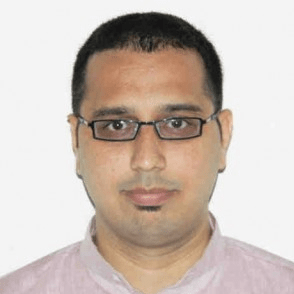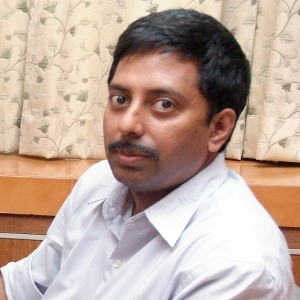Title: Modeling and Data Integration for Control and Optimization of Chemical and Biological Systems
- Date: Saturday, 8th July 2023 (Full-day Workshop)
- Prerequisite Knowledge: Dynamical systems and basic optimization
- Learning Outcomes: The participants will be able to learn theory for analysis of experimental data for developing dynamical models of chemical and biological systems. The participants will learn (i) to perform model formulations for chemical and biological systems using process models, cybernetic modeling, dynamic flux-balance analysis approaches, (ii) to perform structural and parameter identifiability analysis and parameter estimation frond data, and (iii) to apply the concepts in process control and metabolic engineering applications.
Outline of Workshop
Study of chemical/metabolic reaction systems is an interdisciplinary area of research involving understanding of chemical interactions using tools from systems biology, chemical engineering, biotechnology, and chemistry. Models of reaction systems are important for fundamental understanding of molecular mechanisms, and cell functionality in chemistry and biology. Furthermore, for biological systems, models of microbial cells are used for understanding and manipulating cells to produce desired products through metabolic engineering and synthetic biology tools. These models are also important for model-based process development and model-based control, optimization and monitoring during production in chemical and biotechnology industries. Hence, it is important to build reliable mathematical models of chemical and biological systems by integrating experimental data. Advances in measurement techniques and process identification methods allow us to build high fidelity dynamical models of reaction systems. Kinetic modeling and cybernetic modeling approaches are examples of dynamical models of reaction and metabolic systems. While genome-scale metabolic models (GEMs) are commonly available for different organisms including those currently used for industrial applications, building large-scale dynamical models of metabolism describing the intracellular reactions in biological systems is still challenging. Extension of GEMs for dynamic simulations accounting for microbial regulation requires special techniques that enable integrating phenotype and molecular data, e.g., through the cybernetic approach.
Identification of a reliable dynamical model of the underlying system for a given objective is a central theme in the field of system identification. Identification of dynamical models of chemical and biological systems is an iterative process involving (i) generating informative data and (ii) fitting a proposed model (or a set of proposed models) to generated data. The process is repeated until a model of acceptable fidelity is identified. The objective of this workshop is to introduce systematic approaches for identifying dynamical and steady state models from data and their applications in model-based monitoring, control and optimization of chemical and biological systems through interactive lectures and hands-on practices.
Schedule & Materials
| Time | Topic | Speakers |
|---|---|---|
| 08:30 - 08.40 | Welcome and introduction to the workshop and speakers | Nirav Bhatt, Manokaran V., Hyun-Seob Song, Sridharakumar Narasimhan |
| 08:40 - 09:15 | Modeling of chemical and biological systems using first-principles models | Nirav Bhatt, IIT Madras, India |
| 09:15 - 10:00 | Dynamic models of biological systems | Hyun-Seob Song, University of Nebraska-Lincoln, USA |
| 10:00 - 10:15 | Discussion | |
| 10:30 - 12:00 | Hands-on session: AUMIC - Mano, Simulation of Kompala model | Manokaran V., University of Nebraska-Lincoln, USA |
| Data Set | ||
| 13.30 - 14:15 | Structural and parameter identifiability of reaction systems and measurements | Sridharakumar Narasimhan, IIT Madras, India |
| 14:15 - 15:00 | Incremental model identification for chemical and biological reaction systems | Nirav Bhatt, IIT Madras, India |
| 15:15 - 16:15 | Hands-on session: Incremental modeling and state estimation | Nirav Bhatt/Sridharkumar Narasimhan, IIT Madras, India |
| 16:15 - 16:45 | Metabolic modeling for biotechnology applications: Parameter identification using AUMIC | Manokaran V., University of Nebraska-Lincoln, USA |
| 16:45 - 17:00 | Discussion and networking |
Important Instructions
- Installation of MATLAB prior to workshop is recommended
- Download AUMIC from GitHub and follow the steps for installation



